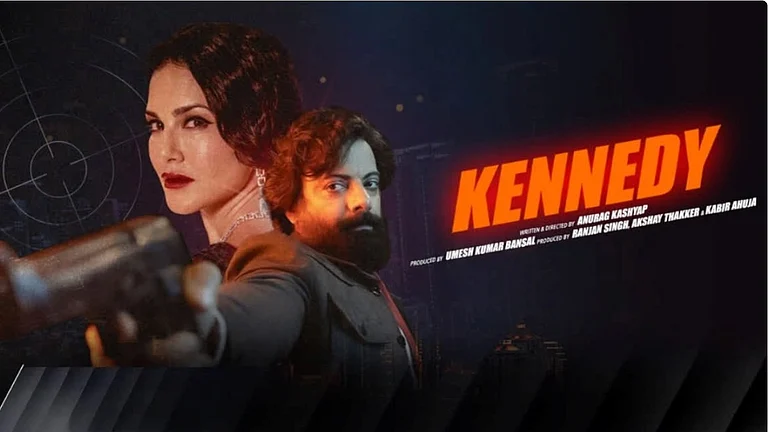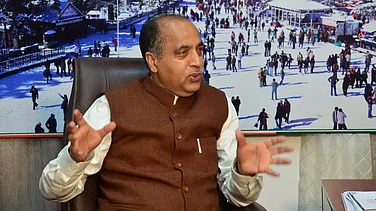As the Supreme Court hearings on same-sex marriage go on, opposed by the BJP-ruled centre, an interesting juxtaposition has presented itself here. The BJP, now the dominant ideological and political power in the country have become so, by virtue of relative internal conflict. Of all the landmark controversies that the ruling Centre has seen through its tenure, for the first time perhaps, this issue shows something else. Interestingly the party’s stance on same-sex marriage has been ever-evolving with the prominent faces pitching in with different views and opinions.
It is too early to extrapolate anything from relatively minor remarks, and statements made by faces of the party who work as a united front. But it is still an interesting curiosity. The ever-evolving stance of BJP leaders and their closest allies here shows how they have not locked ranks on this issue, as they normally do on most matters, using their immense political, social and ideological will to pull things their way.
It is not even a matter of internal difference of opinion, but more of a party stance that has shown an interesting trajectory, as the Centre did not oppose the 2018 judgement to decriminalise homosexuality, withdrawing their petitions to contest it, but clarified that they hoped the court would not construe anything else from this action, even as many of the party’s prominent faces made their stance clear, opposing the decriminalisation.
Outlook covers some of the different opinions that BJP leaders have voiced over the years to highlight this changing trajectory.
For example, back in 2013, when the Supreme Court overturned the Delhi High Court’s decision on punishing sex between two consenting adults, Yogi Adityanath, the UP chief minister, an MP at the time, welcomed it, asserting he was opposed to any move to decriminalise homosexuality.
Conversely, in the same year, his BJP colleague Piyush Goyal spoke in favour of decriminalisation, adding that he found nothing unnatural in such relationships.
The powers that be did not contest that further. But recently, as the hearings go on in the court and the spotlight shines back on the party’s own difference of opinion, especially against the backdrop of the latest development in January, when they opposed the elevation of senior advocate Saurabh Kirpal to the Supreme Court, citing his sexual orientation as a reason. If appointed, Kirpal could have been India’s first openly gay judge.
As the Centre opposes the marriage petition before the Court presently, the face of the ruling party, Modi echoes the larger sentiment of his party and affiliates. Almost verbatim, he repeated the Centre’s argument in the Rajya Sabha last December during the Winter Session, saying that, “Same-sex marriage will cause complete havoc with a delicate balance of personal laws in the country.” Modi doubled down on this with columns in newspapers, where he elaborated on his views about how he felt that it would ruin the very fabric of Indian society, should this be accepted.
Here, one would think, is the full stop on the issue. For Narendra Modi, the face of the party, the Sangh, and the imperial standard behind which they close ranks should be the full stop when it comes to any difference of opinion. Strangely enough though, this was not the case.
In contrast, and in truly stark contrast, one of the men who has been Modi’s strongest backers, RSS chief Mohan Bhagwat also made his organisation’s position on such issues clear. What was it? The RSS and Bhagwat felt that people from the LGBTIQ+ community should have their own space and feel that they are part of society. This was the same RSS back in 2018, under Bhagwat’s presidency, who had expressed that they opposed the decriminalisation of consensual sex between adults. In interviews, Bhagwat has even gone as far as to cite the religious texts and mythologies that form the basis of the organisation’s beliefs to justify why he felt that space should be provided, citing examples from the Mahabharata even.
Such difference is rare among the ranks of the ruling powers, and interesting to observe. The latest word is reserved for Union Minister Kiren Rijuju who reiterated his stand that the courts were not the forums to decide such issues. While he was consistent in following the party line that this should be left to Parliament and the will of the people, such departures do reflect the ever-evolving stand of the BJP and its affiliates, and while a larger ultimate purpose cannot be discerned, one must note that at least for a party that has lived by strict codes and strictures of their values and holy books, this sensitivity is truly new and evolved. How it plays out, we can only wait and watch.


















.png?w=200&auto=format%2Ccompress&fit=max)







